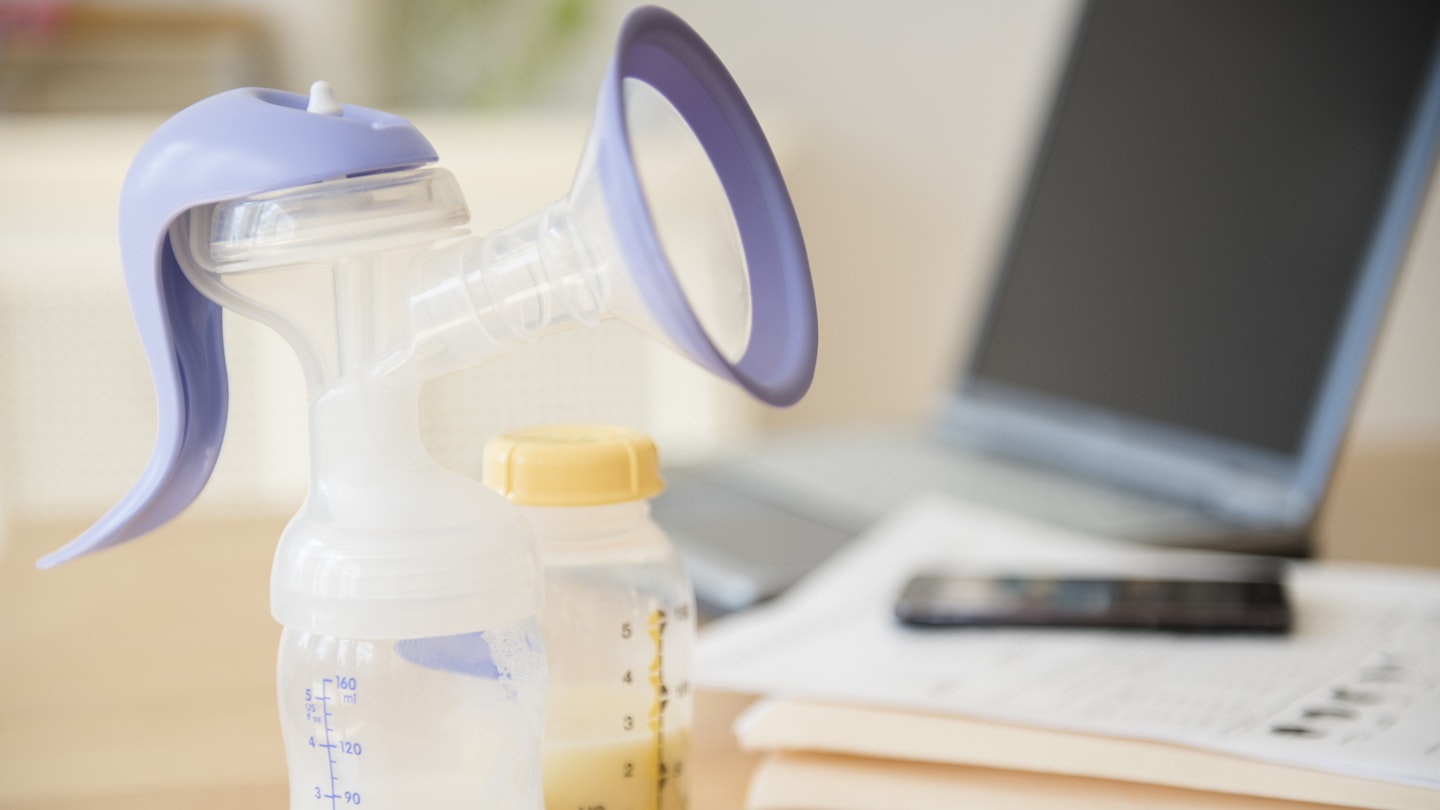‘I had a return to work meeting with my manager who “gently suggested” that I would need to stop breastfeeding before returning to work as there would be no facility for me to continue to do so in the long term,’ says Gina*, a mother of one working in the construction industry, ‘the inability to express at work definitely had an impact on my decision to completely stop’.
Gina is one of many, many women who returned to work after having a baby only to find her workplace did not adequately support breastfeeding mothers. Made to express in the managing director’s private office during her ‘Keep In Touch’ days – in a room that had no lock – her return to work resulted in a complete change to the feeding routine of her 9-month-old baby, before she was forced to stop altogether due to the lack of facilities.
Her experience is shared by more than half of breastfeeding mothers, according to a new survey by law firm Slater and Gordon. Polling 2,000 women who have had a baby within the last five years, a third of breastfeeding mums have had to use a toilet when they express at work, with more citing unsuitable facilities available. The result? A third have experienced problems expressing, from supply issues to infections and anxiety.
‘The first time I left my son with his dad to go to a meeting, I was panicking the whole time about having to express in the toilet and hoping my boobs weren’t going to leak,’ says Louise Deverell-Smith, mother of three, ‘I tried not to express too much [in offices] after that. I did get mastitis as few times.’
Angela*, mother of three working in the financial services industry, was forced to use the basement of her workplace to express when she returned to her work. While she was allocated a meeting room at first – also without a lock, and with a glass panel door – it was then offered to external auditors to use. ‘I was told to ask them to let me have access to the room every lunchtime. The first time I asked them, they obviously hadn't been told and made a big fuss about having to take their belongings,’ she said, ‘After lunch they came and had a discussion about it with my manager in front of my whole team and it was a really awkward situation that made me not want to ask again.’
Forced to use the women’s shower room in the basement of her building, she often had to skip lunch after taking the time to express. ‘I really felt like it was a huge inconvenience to them, when in reality I wasn't asking for much,’ she continued.
According to Emma Pickett, a lactation consultant and chair of the Association of Breastfeeding Mothers, the problem isn’t just that employers aren’t supportive enough, it’s also that UK law doesn’t provide adequate guidance for employers to understand how necessary breastfeeding spaces are.
‘Employers don’t always understand that if a mum can’t express milk she can end up being in pain, her milk supply will reduce and she may even become seriously ill with mastitis or an abscess,’ Emma told Grazia, ‘Our law treats expressing breaks as though they are options you may wish to “request”. There is no requirement for mums to have breaks to pump or spaces to do so. But for the mothers living through this, they are essential.’
While UK employment law currently states breastfeeding staff should be given a place to rest, it doesn’t outline requirements for paid breaks or providing a suitable space to express.
‘If UK law gave better guidance, it would make things easier for both employers and parents,’ Emma continued, ‘How can it be right that we have Shared Parental Leave and mums might be going back to work as early as two or four weeks after babies being born, but they have no right to express milk at work?’
Paula Chan, law specialist at Slater and Gordon, has too urged the government to take note of the poll results. ‘This research is concerning – no mother should feel forced to express milk for her child in a toilet,’ she said, ‘People would be horrified at the thought of food being prepared in such unhygienic conditions so it’s unacceptable that we are in a situation where that is considered to be an option when preparing milk for a baby.’
Of course, whether the UK government will assess current legislation remains to be seen. With Brexit taking precedence and MP’s leaving their parties left, right and centre, it’s hard to believe this news will cross their radar. And as seems to be the case since the EU referendum, women will continue to be cast aside by the government meant to protect them.
*names have been changed
